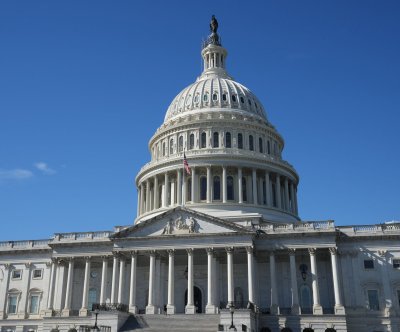Richard Zachary Ackerman, a 22-year-old from Salem, New Hampshire, pleaded guilty to charges stemming from his involvement in the Jan. 6 Capitol riot. He admitted to a felony offense of civil disorder and a misdemeanor offense of theft of government property. As part of a plea deal, prosecutors dropped a second felony count of assaulting police and two additional misdemeanors. Ackerman’s sentencing is scheduled for July 25.
The U.S. Attorney’s Office for the District of Columbia revealed that Ackerman traveled to Washington D.C. and expressed intent to witness the “riots/protests.” While at the Capitol, he donned a Capitol Police officer’s helmet and joined rioters in clashes with law enforcement at the Lower West Terrace Tunnel. Ackerman threw a water bottle at officers and was hit with OC spray. The next day, he returned to New Hampshire, recounting being sprayed and claiming to have been at the building’s doorway.
Jan. 6 Rioter Pleads Guilty to Stealing Police Helmet as ‘War Trophy’ (Credits: The Boston Globe)
In a text, Ackerman boasted of stealing a SWAT Team officer’s helmet, referring to it as his “war trophy.” The FBI arrested him on June 20, 2023, and a subsequent search of his home uncovered the stolen helmet adorned with stickers associated with the Nationalist Socialist Club 131, a neo-Nazi group. Ackerman’s case is among the nearly 1,400 individuals charged in connection with the Jan. 6 attack, with almost 500 facing charges related to assaulting or obstructing law enforcement.
Ackerman’s guilty plea marks another development in the ongoing legal proceedings surrounding the Capitol riot. His admission to participating in the disorderly conduct and theft adds to the growing body of evidence against individuals involved in the insurrection. The presence of neo-Nazi insignia on the stolen helmet underscores concerns about extremist elements among the rioters.
The plea deal struck between Ackerman and prosecutors reflects a common strategy in cases related to the Capitol riot, where defendants may plead guilty to lesser charges in exchange for dropping more serious ones. Ackerman’s sentencing hearing in July will determine the consequences of his actions. The resolution of his case contributes to the broader effort to hold accountable those responsible for the unprecedented breach of the U.S. Capitol on Jan. 6, 2021.
